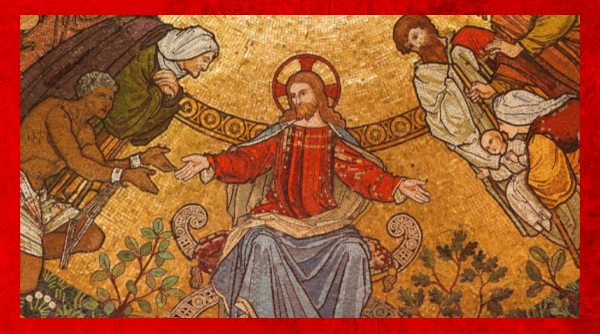How to meditate

“Prayer purifies us. Reading instructs us. Both are good when both are possible. Otherwise prayer is better than reading.” (St. Isidore of Seville, doctor of the church)
How often we commit to take on silent prayer only to then struggle with the ‘how to’ aspect of prayer—what should I do in prayer? This Lenten season is the perfect opportunity to ‘practice’ daily mental prayer. The following are instructions from Fr. John Roothaan who was the Superior General of the Society of Jesus (Jesuits) in the early 1800’s. I’ve provided my paraphrase of it along with his statements in quotes.
How to Meditate
(Fr. John Roothaan, S.J. 1837)
Fr. Roothaan explains St. Ignatius’ teachings on how to use our intellect when meditating on the scriptures. Upon reading the scripture passage, he suggests developing the habit of asking a series of questions to gain an understanding of what God is teaching ‘me’ at this moment:
What truth is to be considered here? Pick out one definite truth from the passage. For example, if praying Luke 9:25 “For what does it profit a man if he gains the whole world and loses or forfeits himself?”, the definite truths are that gaining the whole world is vain, and the most important concern is salvation or loss of the soul.
What practical conclusion should I draw? Think about what this truth means in regulating my life, e.g. that I shouldn’t risk my salvation for ‘some fleeting pleasure’. The conclusions must be specific not general or risk “shooting without aim; no damage is done to the enemy, no defenses are destroyed.” Make it mean something; be honest. Otherwise, “we may be said to be doing no more than beating the air”.
What motives are there for observing it? What we learn in the meditation is ‘our duty’. “The will follows the intellect. Unless the intellect grasps the motives for action, very little influence will be exerted on the will.” In other words, we do as we think so we must seriously think through our motives for trying to live this Gospel truth. Ask yourself:
Is it becoming? How does it aid me in becoming a follower of Christ, in becoming who God created me to be? ”What virtue, what perfect and sanctity should…he seek who is a follower of Jesus? What difficulty…inconvenience…affliction…should be overcome?”
Is it useful? What are the spiritual advantages to my enacting this particular change? “Any other motives would not be supernatural. Hence, they would be wholly futile.” Be honest with motives as insincere motives may lead to ‘defects’ rather than virtues and ‘make hypocrites [rather] than truly virtuous men.’
Is it easy? If we are sincerely and fully taking on the yoke of Christ, the burden will be easy. Conflicted hearts, half-hearted or partial resolutions, will feel heavy. “If anyone, therefore, feels that the burden of the Lord is heavy, the only reason is that he does not take the whole upon himself, and because his is not meek and humble of heart”. … When we deny [enacting evil habits], we weaken and slay the monsters living within us that are the causes of all our interior sadness and sufferings.”
Is it pleasing? “What joy will be mine if I observe this doctrine? No life conformed to the will of God is sad.” Take time to think about what that really means.
Is it necessary? Serious reflection on the “grave reasons why I absolutely must carry out the practical teaching” of the scripture. Give God time to fill you with the grace of knowing separation from Him.
How have I observed this up to the present? Examine your life for this one particular truth. Thank God for the times you obeyed it, and be wholly sorrowful for the times you didn’t. Pick out specific experiences of your life to talk about with God.
What must I do in the future? Whatever we plan (our intellect) the will must follow. From those past experiences, make resolution for today.
What obstacles must I remove, and What means must I employ? Again, be wholly honest when thinking through what has led you to fall into sin in the past. “let him beware of attributing everything to the occasions. In sins where we are taken by surprise and in indeliberate sins, it is true, we are to note especially the occasions, and guard ourselves against them.” In other words, indeliberate and semi-deliberate sins are usually caused by the occasion. In contrast, we ourselves are the cause of sins from our own disordered passions such as anger.
In this way, a simple scripture meditation becomes a type of Examen, and its resolutions are to be examined for the next day.
“The art of meditation is a part of the Science of the Saints. It must be learned from the blessing of the Holy Spirit, by earnest desire and good will, rather than from the teaching of men. … We are not dealing here with a human enterprise but with God’s work. … let us at the same time frequently beg God, “Lord, teach me to pray; teach me to meditate; grant me the gift of prayer.” … The aim of meditation is not to devote an hour to God in prayer, but by it to cleanse the soul from evil habits, to adorn it with virtues, to amend and perfect our whole life, to strengthen ourselves in the service of God.” (Fr. John Roothaan)
Ad Majorem Dei Gloriam 😊
From How to Meditate by Fr. John Roothaan, transl. Rev. Louis J. Puhl, 1945 Newman Bookshop.
(Image from Pexels)

Thank you for caring and sharing appropriately...
Consecrated to the Sacred Heart of Jesus through the Immaculate Heart of Mary. Except where noted, all design, writing and images ©2024 by Debra Black and TheFaceofGraceProject.com. All Rights Reserved. No part of this website may be reproduced, distributed or transmitted in any form or by any means, including downloading, photocopying, recording, or other electronic or mechanical methods, without the prior written permission of the publisher, except in the case of brief quotations embodied in critical reviews and certain other noncommercial uses permitted by copyright law. For permission or to report violations please email: thefaceofgraceproject@gmail.com
